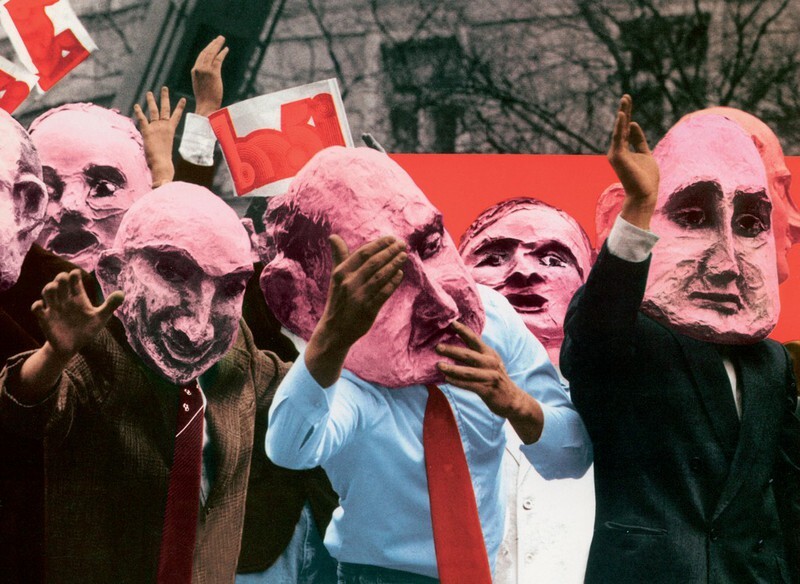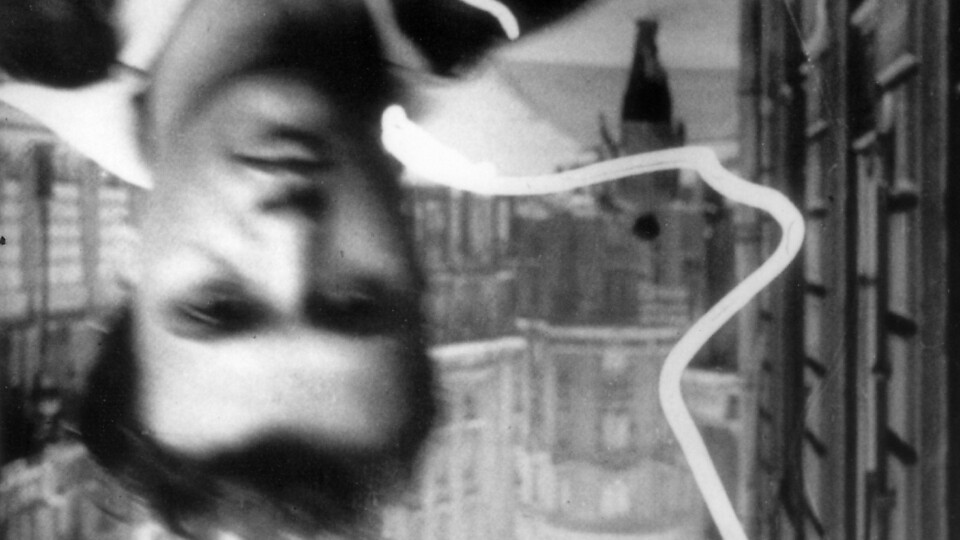Ji.hlava Manifesto
Containing layers of meaning hovering in the atmosphere between social importance and intimate perspectives in cinema practice, the film essays reflect the contextual and stylistic diversity of the Jihlava IDFF’s program over the twenty years.
Film essays are popular with the viewers as there is always a strong filmmaker with a distinctive stance behind the individual works. They are characterized by complex thinking and a rich array of visual means, combining imagination and experimentation, frequently employing montage. That gives rise to very diverse and remarkable works overlapping with many categories of audiovisual art. The Jihlava Manifesto section presents essential items of its history in this genre.
Paper Heads (Dušan Hanák, Slovakia, 1995)
‘‘Freedom is… when a person gets rid of something that suffocated him and prevented him from breathing.
Freedom is… the biggest gift of my life.
Freedom is… not to have fear.
Freedom is… when a person is independent.
Freedom is… when nobody is holding you back.’’
The documentary collage, Paper Heads, uses film editing to reflect on human freedom or the lack of it, on the relationship between the ordinary citizen and totalitarian power. The film presents fragments of events of Czechoslovak history between 1945 and 1989 which are accompanied by recorded skits and contemporary documentary footage, testimonies of participants and dozens of deep musings – voiced loudly or even those kept hidden. The documentary made by Dušan Hanák is a unique and chilling indictment of communism, which definitely should not to be missed. It will get under your skin sooner than the first socialist celebratory song ends, and a sense of helplessness and disgust will have a hold on you for much longer than after the lights turn on in the hall. Some might argue that the film is too one-sided and biased. I dare to disagree. Sometimes you need to open the eyes of the nation using similarly bold shots, so that one day we do not discover that we have a very short-term memory. Paper Heads is still relevant today, twenty years after its creation – perhaps, more than ever.
Fungus (Vít Janeček, Czech Republic, 2000)
Fungus is not a documentary film about the phenomenon of mushroom picking in the Czech Republic but a film essay about mushrooms and their connections to other living things. The director tries to use the structure of mushrooms to explain nature, science, and civilization, all the while searching for similarities and analogies between man and nature; he succeeds to do so thanks to the captivating and loose handheld camera as well. Vít Janeček deals with documentary film and theory as well as with the relationship between art and science; it is thus not surprising that the film moves from a discussion of biology to an exploration of philosophical questions.
Brought to you in collaboration with DAFilms.com
Plani di giardini ideali (Radek Tůma, Czech Republic, 1995)
Documentarist Radek Tůma likes to experiment with form and with the boundary between documentary and fiction. He opens this year’s showcase of Jihlava’s film essays with his experimental baroque western Plani di giardini ideali. It is a recording of a theatrical “opera naturalis“ whose concept straddles a low-budget feature and a documentary about its own making. It is a film, a theatre performance, a recording of this performance and above all, a distinctive documentary. It is centred around Vratislav Brabenec, poet, musician and above all, gardener.
Brought to you in collaboration with DAFilms.com
Touch (Shelly Silver, USA, 2013)
Jihlava Manifesto presents essential film essays screened in the course of the festival’s history. One of them is Touch by Shelly Silver pointing out the constructed nature of every work of art. In the film, a man (a librarian, a gay man, an observer, and an imitator) returns home to New York’s Chinatown after several years away to care for his dying mother. In his spare time, he collects images – his witnesses and collaborators, which we see through his eyes. The film is full of sharp cuts between silence and speaking.
Artist Shelly Silver (1957) is a professor at Columbia University who uses film, video, and photography to give shape to various themes and genres, with a focus on private and social (inter)relationships.
Brought to you in collaboration with DAFilms.com
Last Supper (Lars Bergström, Mats Bigert, Sweden, 2005)
Since the start of their collaboration, the Stockholm-based artistic duo of Lars Bergström (1962) and Mats Bigert (1965) have produced various creative projects focused on current scientific and social themes, emphasizing humanity, nature, and technology. It is thus no wonder that they have also focused on the theme of capital punishment. Their reconstruction of the preparations for a prisoner’s last meal prior to their execution turns into a reflection on the position of capital punishment and its associated rituals in today’s society. The film combines documentary material with in-depth stylization, iconic installations and animation. It is an excursion into cultural history, and symbolic feasting becomes a source for the imagination.
Brought to you in collaboration with DAFilms.com
The Taste of Koumis (Xavier Christiansen, Belgium, 2003)
Thanks to the showcase of international documentaries of Jihlava Manifesto, the viewers can broaden their horizons both in the field of artistic perception and geographically. The documentary film The Taste of Koumis. is an inward empathetic journey across Kazakhstan and Kyrgyzstan. It is set in certain timelessness. The director remains a patient observer trying to break free from the image of the pseudo-movement of fake reality and to achieve the captivating charm of a dream. The bodies, faces, landscape, and music are permeated by a sense of melancholy, and the intuitive, meticulously composed images evoke moments of pure cinematic excitement.
Belgian filmmaker Xavier Christiaens (1963) started out as an actor and assistant director. He made his debut with The Taste of Koumis at Jihlava IDFF in 2003.
Brought to you in collaboration with DAFilms.com
A New Hyperion, or Liberty, Equality, Fraternity (Karel Vachek, 1992)
Vachek’s film seems to be topical again. The complex collage with a philosophical-sociological depth captures the situation in Czechoslovakia before the election in 1990. One of the main roles is “played” by Václav Havel, Alexandr Dubček, Charter 77 members, actors and communists. They are actors in a unique pre-election comedy in which the future and the moral principles of the new democratic state are at stake. Juxtaposing various phenomena with a subtle sense of irony, Vachek is is captivated by the diversity of events, political ceremonies and populist spectacles, with an interest in seemingly unimportant movements or gestures.
Documentary filmmaker Karel Vachek (1940) creates complex collages with a philosophical and sociological depth. He debuted with Moravian Hellas (1963, Jihlava IDFF 2015). Today, he heads the documentary department at FAMU.
Brought to you in collaboration with DAFilms.com
Fascination (Mike Hoolboom, Canada, 2006)
Well-known Canadian avant-garde filmmaker Mike Hoolboom creates experimental films and videos. Fascination is a portrait collage of the works, archive materials and creative images by Colin Campbell (1942–2001), one of Canada’s most expressive video artists. Through this film, Mike Hoolboom looks for parallels with his own work, addressing broader issues about video as a medium and including interviews with Canadian artists. The end result is a non-traditional approach to film narrative.
Get carried away by its swirl.
Brought to you in collaboration with DAFilms.com


